Meet the experts

Professor Charlotte Teunissen
Program Director
Professor of Neurochemistry, Chair of Neurochemistry Lab, Amsterdam UMC, The Netherlands
Charlotte Teunissen’s drive is to improve care of patients with neurological diseases by developing body fluid biomarkers for diagnosis, stratification, prognosis and monitoring treatment responses. Studies of her research group span the entire spectrum of biomarker development, starting with biomarker identification, often by –omics methods, followed by biomarker assay development and analytical validation, and lastly, extensive clinical validation and implementation of novel biomarkers in clinical practice.
She has extensive expertise with assay development on state-of-the-art technologies, such as mass spectrometry and antibody-based arrays for biomarker discovery, ultrasensitive immunoassays, and in implementation of vitro diagnostic technologies for clinical routine lab analysis. She is responsible for the large well-characterized biobank of the Amsterdam Dementia cohort, containing >10,000 paired CSF and serum samples of individuals visiting the memory clinic of the Alzheimer Center Amsterdam (a.o. controls, patients with Alzheimer, Frontotemporal, Lewy Bodies). To ensure the quality of the biosamples, the group studies pre-analytical effects, which are key to implementation.
Prof Teunissen is leading several collaborative international biomarker networks, such as the Society for Neurochemistry and routine CSF analysis and the Alzheimer Association-Global Biomarker Standardization and Blood Based Biomarkers and the Body fluid Biomarkers PIA, and the recently founded Coral proteomics consortium. She is the coordinator of the Marie Curie MIRIADE project, aiming to train 15 novel researchers into innovative strategies to develop dementia biomarkers (10 academic centers + 10 non-academic centers), and the JPND bPRIDE project, that aims to develop targeted blood-based biomarker panels for early differential diagnoses of specific dementias and is a collaborative project between 7 European and 1 Australian centers.
Disclosures
Charlotte E. Teunissen is employed by Amsterdam UMC. She has grants or contracts for Research of the European Commission (Marie Curie International Training Network, grant agreement No 860197 (MIRIADE), Innovative Medicines Initiatives 3TR (Horizon 2020, grant no 831434) EPND ( IMI 2 Joint Undertaking (JU), grant No. 101034344) and JPND (bPRIDE), National MS Society (Progressive MS alliance), Alzheimer Drug Discovery Foundation, Alzheimer Association, Health Holland, the Dutch Research Council (ZonMW), including TAP-dementia, a ZonMw funded project (#10510032120003) in the context of the Dutch National Dementia Strategy, Alzheimer Drug Discovery Foundation, The Selfridges Group Foundation, Alzheimer Netherlands. She is recipient of ABOARD, which is a public-private partnership receiving funding from ZonMW (#73305095007) and Health~Holland, Topsector Life Sciences & Health (PPP-allowance; #LSHM20106). She is also a contract researcher for ADx Neurosciences, AC-Immune, Aribio, Axon Neurosciences, Beckman-Coulter, BioConnect, Bioorchestra, Brainstorm Therapeutics, Celgene, Cognition Therapeutics, EIP Pharma, Eisai, Eli Lilly Fujirebio, Grifols, Instant Nano Biosensors, Merck, Novo Nordisk, Olink, PeopleBio, Quanterix, Roche, Siemens, Toyama, Vivoryon, and the European Commission. She has received payment or honoraria from Roche, Novo Nordisk, and Grifols, where all payments were made to her institution. She also serves on editorial boards of Medidact Neurologie/Springer; and in Neurology: Neuroimmunology & Neuroinflammation. She is editor of Alzheimer Research and Therapy.
All relevant financial relationships have been mitigated.
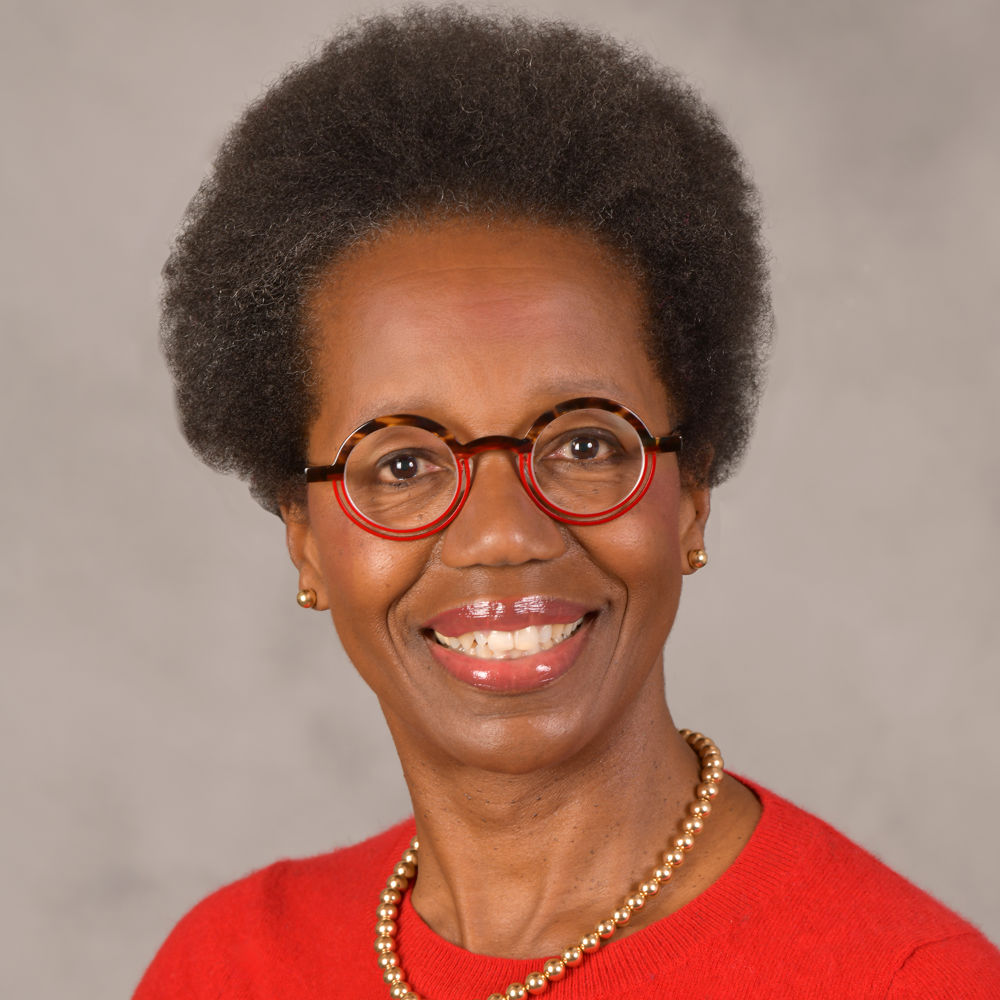
Professor Sharon A Brangman
Professor and Chair of the Department of Geriatrics, SUNY Upstate Medical University, NY, USA
Sharon A Brangman is a SUNY Distinguished Service Professor and Chair of the Department of Geriatrics at SUNY Upstate Medical University. Prior to this appointment, she had been the Division Chief of Geriatrics for 20 years. She is the Founding Director of the Geriatric Medicine Fellowship Program and served in this position for over thirty years. Dr. Brangman is director of the Center of Excellence for Alzheimer’s Disease, is also Medical Director of the Transitional Care Unit on the Upstate Community Campus, was Medical Director of Greenpoint/The Hearth Senior Living Communities in Syracuse, New York for 17 years. Dr Brangman has received many honors, including Best Doctors of Northeast Region, the Chancellor’s Award for Faculty Service and Hartford Geriatrics Leadership Scholars Award. Dr Brangman was a member of the Board of Directors of the American Geriatrics Society for ten years and completed terms as President and Chair of the Board. She also served as Chair of the Board of the Association of Geriatric Academic Program Directors, after completing a term as its President.
Disclosures
Sharon A Brangman has received honoraria and or consultation fees from Eisai and Genentech/Roche.
All relevant financial relationships have been mitigated.
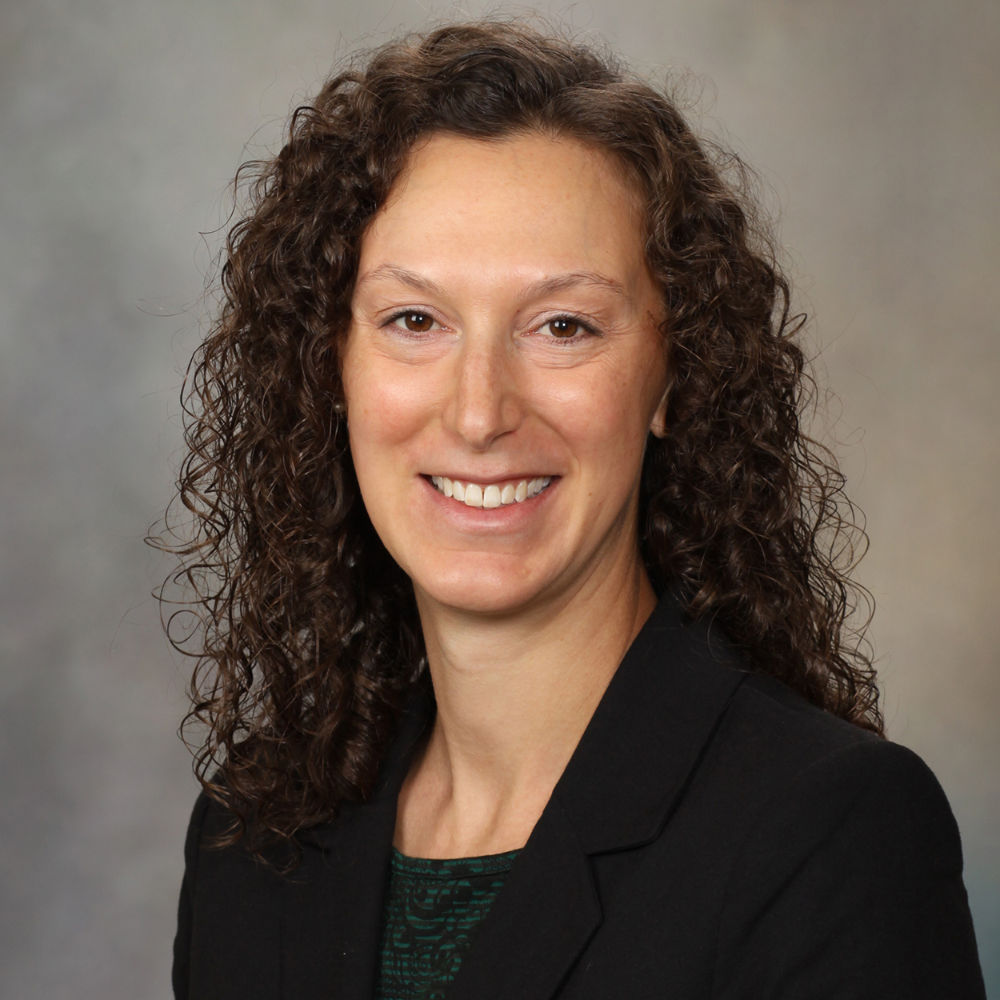
Petrice Cogswell
Associate Professor of Radiology at Mayo Clinic in Rochester, MN, USA
Petrice Cogswell is an Associate Professor of Radiology at Mayo Clinic in Rochester, MN. Her research interests include the temporal evolution of Alzheimer’s Disease biomarkers and amyloid-related imaging abnormalities (ARIA).
Disclosures
Petrice Cogswell discloses honoraria and/or consultation fees from Eli Lilly & Co, Eisai, and Kaplan.
All relevant financial relationships have been mitigated.
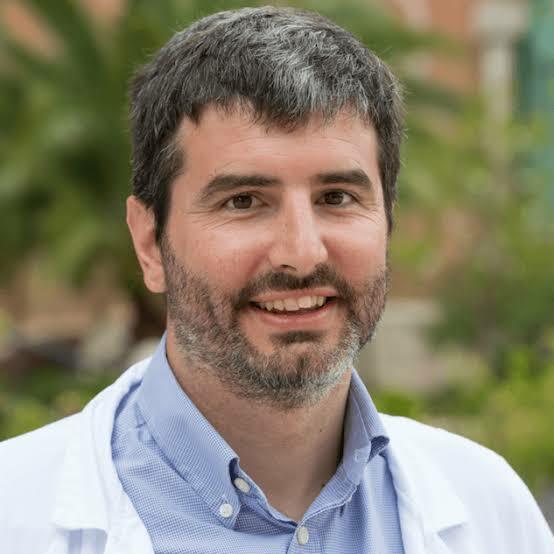
Dr Juan Fortea
Director, Memory Unit, Neurology Department at Hospital de la Santa Creu i Sant Pau, Spain
Juan Fortea is a behavioral neurologist and a dementia expert. He is the director of the Memory Unit at the Hospital of Sant Pau (HSP) and the founding Alzheimer Down Unit Director at the Catalan Foundation for Down syndrome (DS), both in Barcelona, Spain. The Memory Unit of HSP is one of the leading centers in Europe in clinical, biomarker and translational research in Alzheimer disease (AD) and related dementias. The Alzheimer Down Unit has developed and implemented a pioneering population-based health plan to screen for AD in adults with DS (DSAD). The Down Alzheimer Barcelona Neuroimaging Initiative (DABNI), is the largest single center cohort in the world of adults with Down syndrome with available multimodal biomarkers studies and includes plasma, CSF, MRI and PET studies, as well as polysomnography studies and brain donation.
Fortea’s research focuses on biomarker discovery for the early diagnosis of neurodegenerative diseases and the investigation of the natural history of AD. HIs group was the first to demonstrate the striking parallels between the progression of autosomal dominant AD (ADAD) and DSAD, leading to the recognition of DSAD as a genetically determined form of AD.
Fortea’s expertise is recognized both nationally and internationally. He is principal investigator of several competitive national and international research projects both in Europe and the US, and has co-authored more than 240 peer-reviewed publications. He is an active member of several scientific committees and recipient of several awards as well as an elected member of several national and international societies, including the International Scientific Committee of the Jerome Lejeune Foundation (France), the Clinical Research Committee from the Trisomy 21 Research Society. He is the Chair of the Down Syndrome Professional Interest Area (Alzheimer’s Association, USA) and the past Chair of the Behavioral Neurology and Dementia Study Group of the Spanish Neurological Society.
Disclosures
Juan Fortea reports receiving personal fees for service on the advisory boards, adjudication committees or speaker honoraria from AC Immune, Adamed, Alzheon, Biogen, Eisai, Esteve, Fujirebio, Ionis, Laboratorios Carnot, Life Molecular Imaging, Lilly, Lundbeck, Perha, Roche, Zambón and outside the submitted work. He is also holding a patent for markers of synaptopathy in neurodegenerative disease (licensed to ADx, EPI8382175.0).
All relevant financial relationships have been mitigated.

Dr Lea Grinberg
Professor of Neurology and Pathology, Uuniversity of California, San Francisco, CA, USA
Lea T. Grinberg, MD, Ph.D. trained in neuropathology and neuroanatomy. Currently, she is the John Douglas French Alzheimer’s Foundation Endowed Professor and an associate professor of neurology and pathology at UCSF. Her research focuses on neurodegenerative diseases with special emphasis on early disease stages, selective vulnerability, and pathological heterogeneity. Her contributions to the field of dementia include: identifying brainstem nuclei as the earliest structures affected in Alzheimer’s disease and translating these findings to diagnostic and treatment development, investigating the neurobiological basis of sleep dysfunction in neurodegenerative diseases; developing and implementing high-resolution histology tools to validate multimodal neuroimaging findings.
Dr Grinberg directs the Human Validation Core for the National Institutes of Health-funded U54 Center Without Walls for Tau Biology, co-directs the Neurodegenerative disease brain bank at UCSF, is a Co-PI for the U54 LEADS Neuropathology Core, and is a principal investigator of the Tau Consortium. She is a member of the governing board of the Brazilian Biobank for Aging Studies, the Executive Board of the Global Brain Health Institute, and the Medical and Scientific Advisory Group for the Alzheimer Association. She is also the chairperson for the selection committee of the Global Brain Health Institute, and immediate past chair of Neuromodularoty Subcortical System PIA of the ISTAART.
Disclosures
None to disclose.
All relevant financial relationships have been mitigated.

Professor Oskar Hansson
Professor of Neurology,
Lund University, Sweden
Dr Oskar Hansson gained his PhD in neurobiology in 2001 and his M.D. in 2005. He became senior consultant in neurology in 2012 at Skåne University Hospital, and full professor of neurology in 2017 at Lund University, Sweden. Oskar Hansson performs internationally recognized clinical and translational research focusing on the early phases of Alzheimer’s and Parkinson’s diseases. His work on biomarkers has led to over 450 original peer-reviewed publications. He heads the prospective and longitudinal Swedish BioFINDER studies (www.biofinder.se), where the research team focuses on the development of optimized diagnostic algorithms for early diagnosis, and also studies the consequences of different brain pathologies on cognitive, neurologic and psychiatric symptoms in healthy individuals and patients with dementia and parkinsonian disorders.
Disclosures
Oskar Hansson has acquired research support (for the institution) from AVID Radiopharmaceuticals, Biogen, C2N Diagnostics, Eli Lilly, Eisai, Fujirebio, GE Healthcare, and Roche. In the past 2 years, he has received consultancy/speaker fees from AC Immune, Alzpath, BioArctic, Biogen, Bristol Meyer Squibb, Cerveau, Eisai, Eli Lilly, Fujirebio, Merck, Novartis, Novo Nordisk, Roche, Sanofi and Siemens.
All relevant financial relationships have been mitigated.
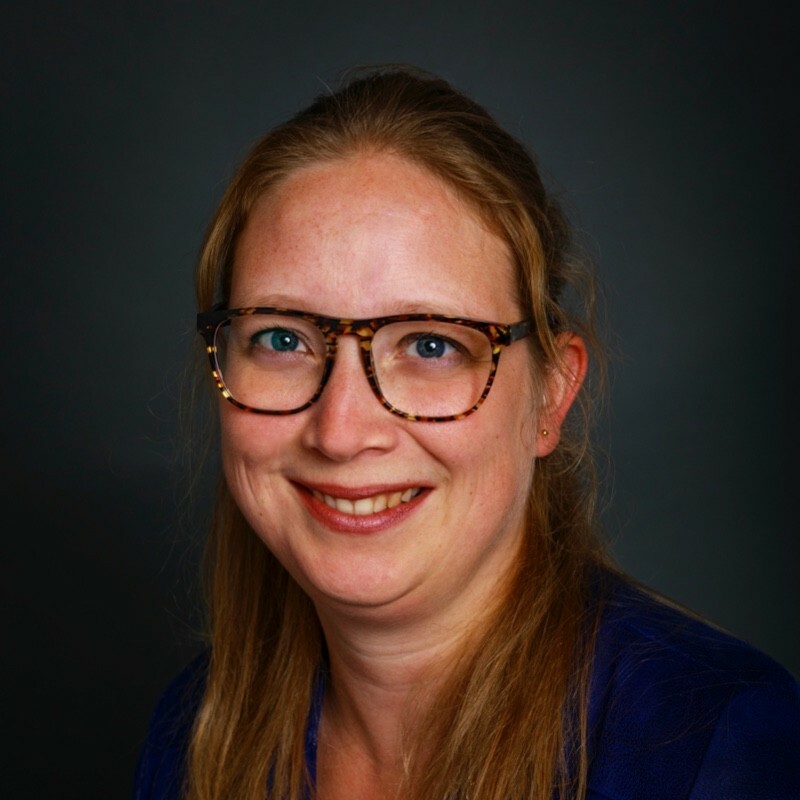
Dr Argonde van Harten
Neurologist, Amsterdam UMC, The Netherlands
Argonde van Harten, MD PhD, is a neurologist at the Alzheimer Center Amsterdam, Amsterdam UMC, location VUmc. She has dedicated her scientific career to improving Alzheimer’s disease diagnosis using fluid biomarkers and digital cognitive assessment. Her current research focusses on implementation of fluid biomarkers into clinical practice, both in memory clinics and in primary care. In addition, she is the principal investigator of a project investigating the association between immune age and Alzheimer’s disease. She is a collaborator in several (inter)national research projects, such as the diagnostic accelerator programme of the Davos Alzheimer Collaborative, AD-RIDDLE, PROMINENT, SCIENCe, the ABOARD project and CANTATE. Her clinical work focusses on diagnosing and treating all types of dementia.
Disclosures
Argonde van Harten has received grants and/or research support from Alzheimer Nederland ZonMW ADDF.
All relevant financial relationships have been mitigated.

Professor Michelle Mielke
Professor of Epidemiology & Professor of Gerontology and Geriatric Medicine, Wake Forest University School of Medicine, USA
Michelle M. Mielke, Ph.D. is Chair of the Department of Epidemiology and Prevention, Professor of Epidemiology, and Professor of Gerontology and Geriatric Medicine at Wake Forest University School of Medicine. Dr Mielke works as a translational epidemiologist to further understanding of the etiology and epidemiology of neurodegenerative diseases. One focus of her research is understanding the utility of blood-based biomarkers for implementation at the population-level for diagnosing Alzheimer’s disease and related dementias. Another focus of Dr Mielke’s research is on understanding sex and gender differences in the development and progression of Alzheimer’s disease and related dementias. Dr Mielke is PI of several NIH- and Foundation-funded clinical- and epidemiological-based grants and is a member of multiple NIH, FDA, and DoD panels. She received the John R. Raymond Mentor Award from the Women Scholars Initiative and is a Fellow in the American Association for the Advancement of Science (AAAS), Section on Neuroscience.
Disclosures
Michelle Mielke has received grants and research support from National Institutes of Health, Alzheimer’s Association, Department of Defense, and Davos Alzheimer’s Consortium. She has received honorarium and/or consulting fees from Athira, Abbvie, Biogen, Danaher, Eisai, Lilly, Novo Nordisk, and Roche.
All relevant financial relationships have been mitigated.

Dr Rik Ossenkoppele
Associate Professor of Translational Neuroscience, Amsterdam UMC, The Netherlands & Lund University, Sweden
Rik Ossenkoppele is an associate professor in Translational Neuroscience and PI at the Alzheimercenter Amsterdam of the Amsterdam UMC and at Lund University in Sweden. He mainly works on biomarkers and cognition in neurodegenerative diseases, especially Alzheimer’s disease. His main motivation is to contribute to improving the diagnostic/prognostic work-up (short-term goal) and curing AD (long-term goal). Dr. Ossenkoppele received several prestigious prices (e.g., the European Grand Prix for Research on the Foundation of Alzheimer’s Disease [2019], the Young Investigator Research award from Alzheimer Nederland [2020] and the Queen Silvia Research Prize [2021]) and research grant (e.g., an ERC starting grant and various dementia research grants). He is an editorial board member for Alzheimer’s Research & Therapy and for the European Journal of Nuclear Medicine and Molecular Imaging, program committee member for several AD and FTD imaging conferences and Chair for the Atypical AD Professional Interest Areas of the Alzheimer Association.
Disclosures
Rik Ossenkoppele has received grants and research support from Avid Radiopharmaceuticals, Janssen Research & Development, Roche, Quanterix and Optina Diagnostics. He has received honorarium and/or consulting fees from GE Healthcare, Asceneuron, Biogen and Bristol Myers Squibb.
All relevant financial relationships have been mitigated.

Professor Claire Paquet
University Professor, Université de Paris Cité, France
Claire Paquet is a university professor at the Université de Paris Cité in France, as well as Head of the Cognitive Neurology Center/DLB unit University Hospital Lariboisière FW in Paris. She is the Elected Head of the Medical Committee of University Hospital Lariboisière Fernand-Widal. From 2021 to 2023 Prof Paquet was appointed as the National Scientific Referent Neurodegenerative Disorders of the French Ministry of Health. Her research topic are new biomarker and therapeutic target in AD and DLB .
Clare Paquet has received honoraria and/fees and grants form Biogen, Eisai, Roche, Fujiribio, Genentech, and Novo Nordisk, and grant and research support from Eli Lilly and UCB Pharma.
Disclosures
Claire Paquet has received honoraria and/fees and grants form Biogen, Eisai, Roche, Fujiribio, Genentech, and Novo Nordisk, and grant and research support from Eli Lilly and UCB Pharma.
All relevant financial relationships have been mitigated.

Dr Robert Perneczky
Professor of Translational Dementia Research,
Director of the Division of Mental Health in Older Adults and Alzheimer Therapy and Research Center at Ludwig-Maximilians-University Munich and German Center for Neurodegenerative Diseases, Germany
Robert Perneczky is a practicing psychiatrist and geriatrician. He is Professor of Translational Dementia Research and Director of the Division of Mental Health in Older Adults and Alzheimer Therapy and Research Center at Ludwig-Maximilians-University Munich and German Center for Neurodegenerative Diseases. He was previously Co-Director of the Neuroepidemiology Department at Imperial College London and was recently appointed to a professorial chair at University of Sheffield. Robert’s research focusses on dementia diagnoses, prevention, and treatment. His studies apply a range of methodologies to advance the understanding of biological and clinical processes that lead to cognitive decline and associated disability. This includes imaging, fluid biomarkers, and neuropsychological and lifestyle assessments in clinical and epidemiological contexts. Robert has a Master of Business Administration degree from Warwick Business School and his more recent research interests include the readiness of healthcare systems for increased cognitive screening and uptake of future disease-modifying dementia treatments, and the collection of real-world evidence to support research and patient care.
Disclosures
Robert Perneczky has received honoraria for advisory boards and speaker engagements from Roche, EISAI, Eli Lilly, Biogen, Janssen-Cilag, Astra Zeneca, Schwabe, Grifols, Novo Nordisk and Tabuk.
All relevant financial relationships have been mitigated.
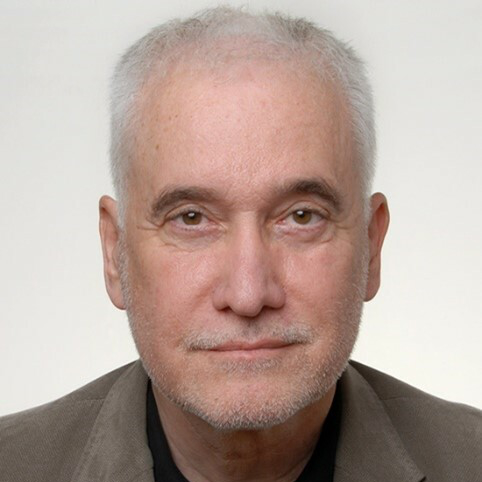
Professor Zvezdan Pirtošek
Professor of Neurology and Professor of Cognitive Neuroscience and is currently serving as Head of Neurology at the Medical Faculty at the University of Ljubljana, Slovenia
Professor Zvezdan Pirtošek is Professor of neurology and Professor of cognitive neuroscience and is currently serving as Head of neurology at the Medical Faculty at the University of Ljubljana, Slovenia.
He studied medicine in Ljubljana and Zagreb and did his postgraduate studies and subspecialisation in neurodegenerative disorders and cognitive neurophysiology at the National Hospital of Neurology Queen Square & University College London Institute of Neurology.
In Slovenia, Professor Pirtošek is a co-founder of TREPETLIKA, the Slovene Association of Patients with Parkinson’s Disease, current head of the Brain Council of Slovenia, current head of The Medical Council of Spominčica, Alzheimer Slovenia. He founded the Centre for Movement Disorders, Centre for Cognitive Disorders, and Laboratory for Clinical Neuroscience at the University Medical Centre Ljubljana. He is active internationally and serves as a member of the management board of the EU joint programme Neurodegenerative Disease Research (JPND).
His main research interests include neurodegenerative diseases, particularly Parkinson’s disease and Alzheimer’s disease, cognitive neuroscience and ageism as a form of discrimination & prejudice.
For his contribution in the field of dementia President of the Republic distinguished him with The Order of Merit of Republic of Slovenia.
Disclosures
Zvezdan Pirtosek discloses honoraria or consultation fees from Abbvie, Britannia, and Medis.
All relevant financial relationships have been mitigated.
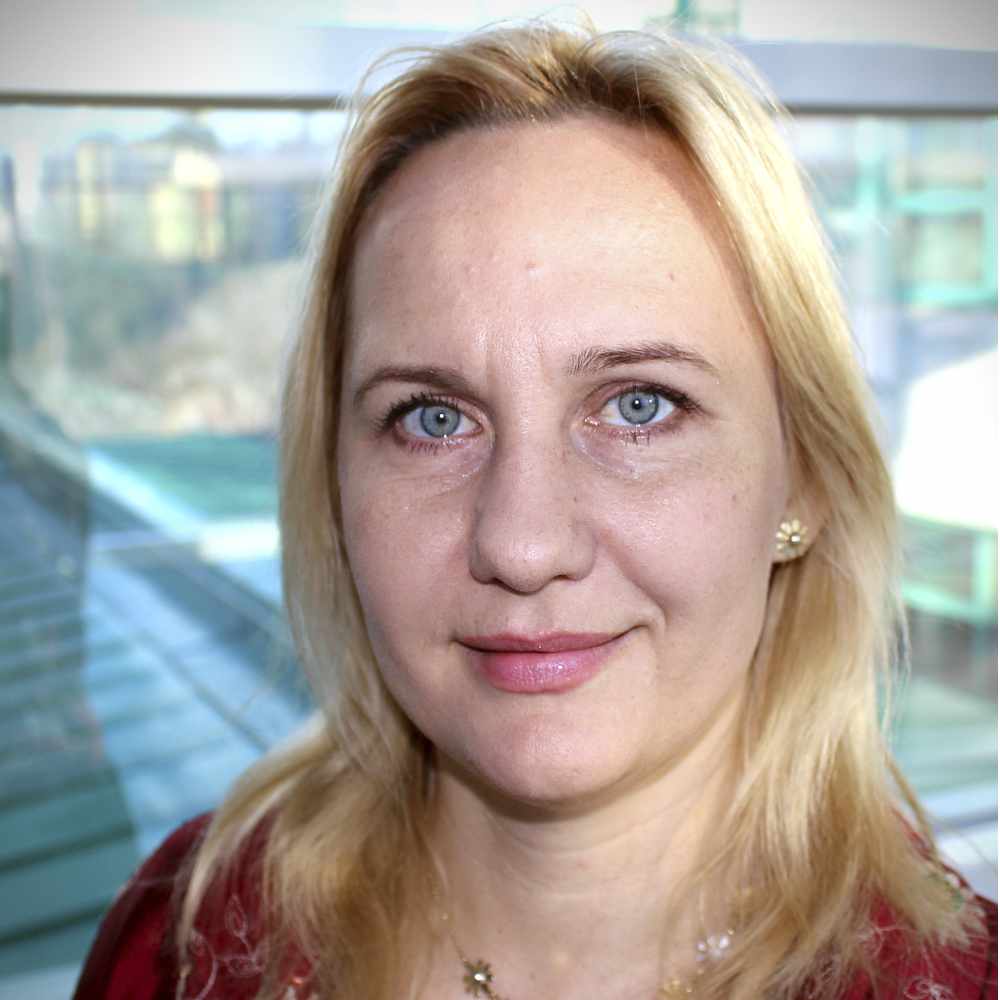
Professor Dorota Religa
Professor of Geriatrics, Department of Neurobiology, Care Science and Society, Deputy Head of Clinical Geriatrics, Karolinska Institute, Sweden
Prof. Religa serves as a regular lecturer for bachelor’s, master’s, and postgraduate studies in geriatrics, neurology, and translational medicine, with particular emphasis on dementia, especially Alzheimer’s disease. Lectures include studies in the field of rehabilitation, nursing, dentistry, and medicine.
Prof. Religa participates in numerous scientific projects and collaborates with European and US centers dealing with neurodegenerative diseases. She is the author of over 100 publications in highly cited journals. She is on the Board of the Swedish Geriatrics Society and the Medicines Committee of the Senior Health Initiative. Prof. Religa is a member of the Academic Board at the European Geriatrics Society (EuGMS).
Since 2008, she has been actively participating in the guidelines group of the European Academy of Neurology (EAN) and has published 3 guidelines on the diagnosis, treatment, and management of dementia. Prof. Religa actively plans and regularly conducts educational workshops and oral lectures at many congresses of EAN, EuGMS, the Alzheimer’s Association International Conferences (AAIC), and the World Controversies in Neurology Congresses (CONy).
Disclosures
None to disclose.
All relevant financial relationships have been mitigated.
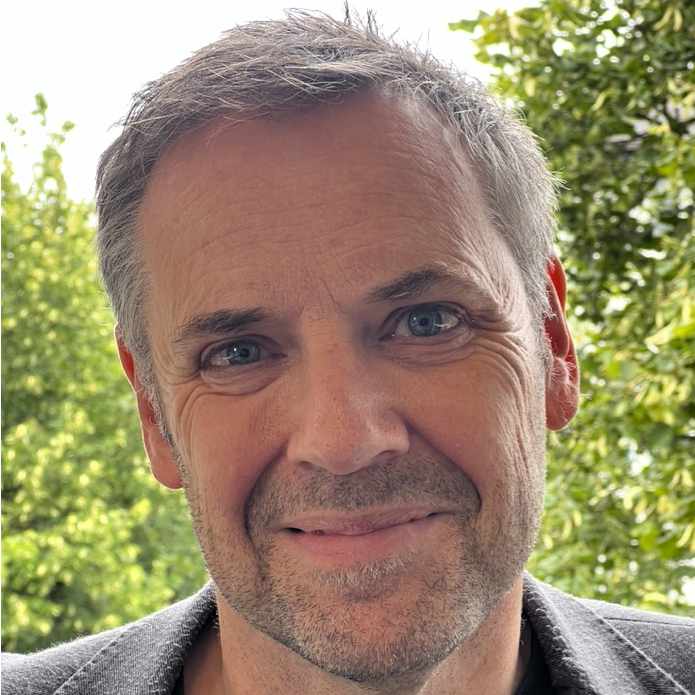
Professor Craig Ritchie
Professor of Brain Health and Neurodegenerative Medicine, University of St Andrews, Scotland
Craig Ritchie is Founder and CEO of Scottish Brain Sciences and Professor of Brain Health and Neurodegenerative Medicine at the University of St Andrews, having moved from his role as Senior Lecturer in the Centre for Mental Health at Imperial College London in October 2014. He completed his PhD at UCL through an MRC Health Services Research Fellowship and was appointed as Senior Lecturer in Old Age Psychiatry at Imperial College London in 2007. He has also served as R&D Director at West London Mental Health Trust from 2010-14 and Deputy Director of the London Northwest NIHR Clinical Research Network. In 2014 he was appointed as Chair in Psychiatry of Ageing at the University of Edinburgh. In 2015 he established the Centre for Dementia Prevention and that year took on the academic leadership role of the EPAD (European Prevention of Alzheimer’s Dementia) Programme. Between 2017 and 2022 he was the elected Chair of the Scottish Dementia Research Consortium and in 2020 he founded and was the inaugural Directorof Brain Health Scotland. He has published over 400 academic papers, conference abstracts and book chapters and secured approximately €100M of grant funding in his career to date.
His main research interest is the interface between clinical trials and translational epidemiology (cohort studies) with a drive to develop the infrastructures at a national level (in Scotland) to prepare health systems and prosecute rapid ‘research into practice’ programmes. He is a pioneer and leading advocate for the Brain Health Movement that works across the life course from primary to secondary prevention of late-stage neurodegenerative disease. This involved working at a public health and policy level as well as developing and implementing Brain Health Clinics across Scotland following ‘The Scottish Model for Brain Health Services’. This work has led Scotland to being one of the Flagship Countries in the Davos Alzheimer’s Collaborative for Health Care Readiness.
He established Scottish Brain Sciences in summer 2022 to accelerate the development of both diagnostics and therapeutics for early-stage neurodegenerative disease and moved full time into the role of CEO of this company in January 2023.
Disclosures
Craig Ritchie is the CEO, Founder, and majority shareholder of Scottish Brain Sciences. He has received consulting fees from Eisai, Eli Lilly, Biogen, MSD, Actinogen, AbbVie, Roche, and Novo Nordisk; and payment and honoraria for presenting at Roche and Eisai.
All relevant financial relationships have been mitigated.
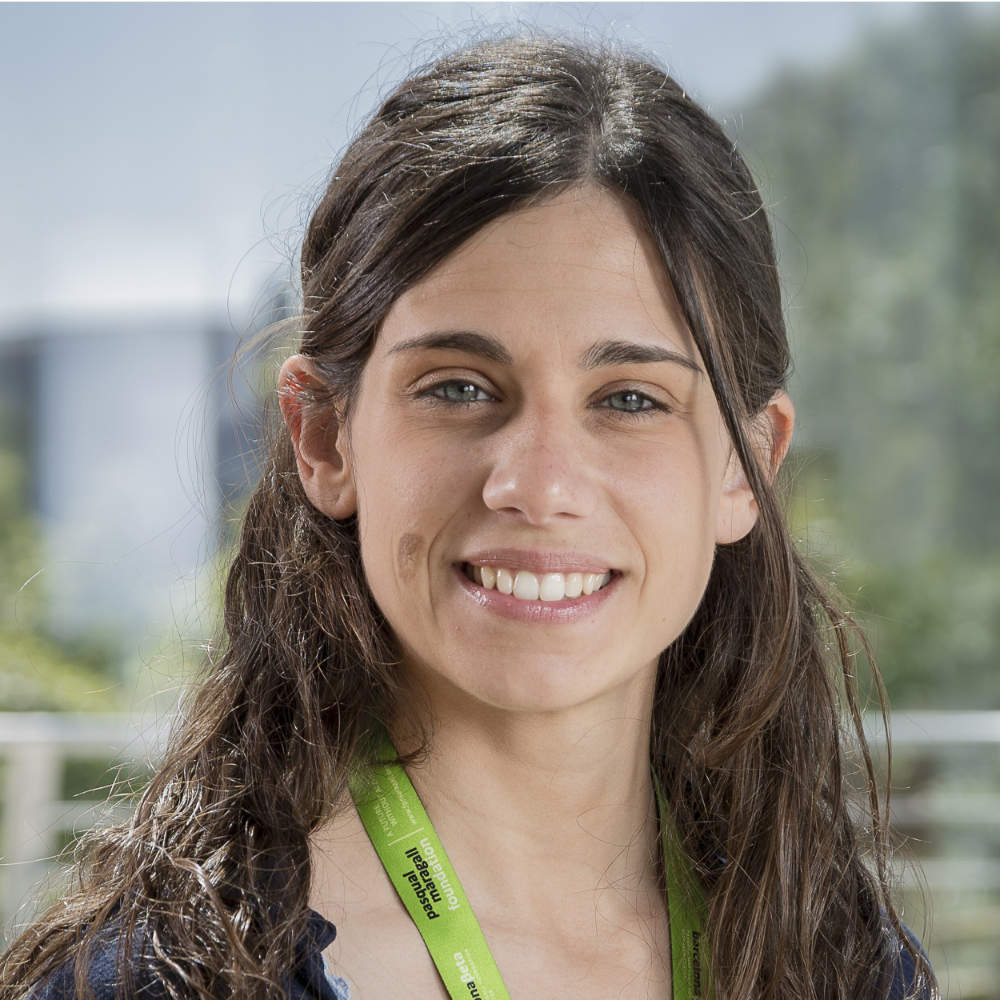
Dr Gemma Salvadó
Associate Researcher, Lund University, Sweden
Gemma Salvadó is currently an associate researcher at Lund University (Sweden). She was awarded the prestigious Marie Skłodowska-Curie post-doctoral fellowship for her outstanding research. Dr Salvadó completed her PhD at the Barcelonaβeta Brain Research Center (Spain), where she focused on understanding the preclinical stages of Alzheimer’s disease through the use of neuroimaging and fluid biomarkers. Her current work involves studying plasma and cerebrospinal fluid biomarkers to gain insights into the disease progress.
Disclosures
Gemma Salvadó has no disclosures.
All relevant financial relationships have been mitigated.
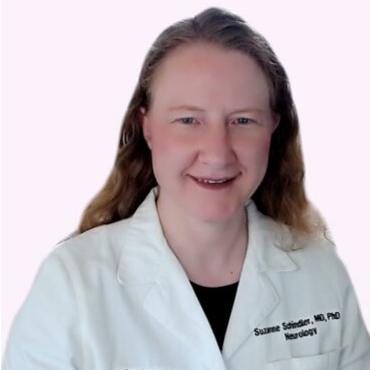
Dr Suzanne E. Schindler
Associate Professor of Neurology, Washington University School of Medicine, USA
Suzanne Schindler is a clinical neurologist and neuroscientist committed to improving the diagnosis and treatment of Alzheimer disease. She completed her scientific and medical training at Washington University in St. Louis. Dr. Schindler sees patients with memory concerns and coordinates clinical biomarker testing for the Washington University Memory Diagnostic Center. She leads the Fluid Biomarker Core for the Knight Alzheimer Disease Research Center and facilitates many collaborative research projects. Her research is focused on the clinical validation of blood tests for Alzheimer disease and understanding the appropriate use of biomarker testing in the clinical diagnosis of dementia.
Disclosures
Suzanne Schindler has no financial interests in any pharmaceutical companies and has not received any direct research funding from any pharmaceutical companies. She has served on scientific advisory boards on biomarker testing and education for Eisai and Novo Nordisk and has received speaking fees for presentations on biomarker testing from Eisai, Eli Lilly, and Novo Nordisk.
All relevant financial relationships have been mitigated.
